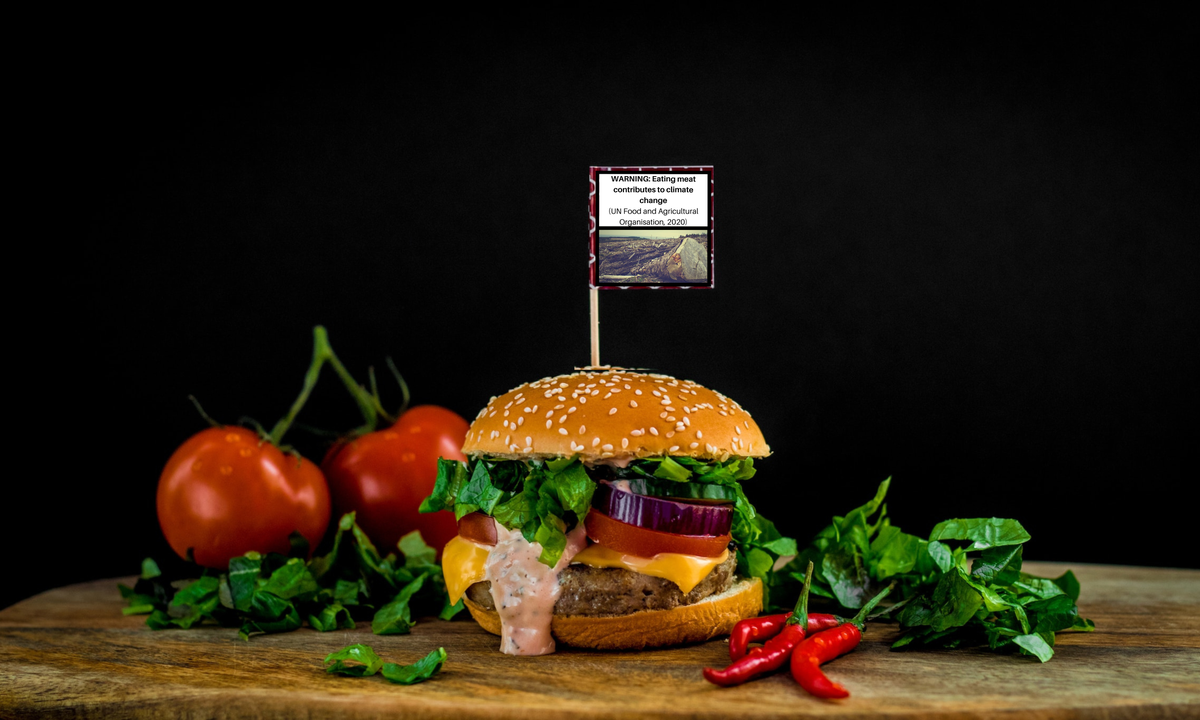
Adding graphic, cigarette pack-style warnings to meat-based meals had a significant impact on people’s decisions to choose them, according to new research.
Scientists from Durham University in the UK came up with the novel approach to cutting meat consumption which, alongside dairy, accounts for about one-seventh of global emissions.
Industrial farming is not only playing a significant role in the climate crisis but is also responsible for forest loss and biodiversity decline.
The scientists took a group of 1,000 meat-eating adults and split them into four groups. The participants were then shown pictures of hot meals tagged with a climate, health or pandemic warning, or no label.
All labels had an impact, and caused the meat-eaters to choose a veggie option 7-10 per cent of the time.
The participants found the climate warning labels to be the “most credible”. These labels showed fire-charred landscapes and read: “Warning: Eating meat contributes to climate change.”
One of the cigarette pack-style warning labels suggested for meat-based meals— (Durham University )
Cigarette packs around the world now show images of premature babies, patients with tracheostomies, and people using breathing apparatus.
A 2021 study found that 42 per cent of non-smokers said they did not want to try smoking after seeing graphic warning labels on cigarette packs.
Nearly three-quarters of the UK population eats meat. The Climate Change Committee, which advises the UK government, says Brits need to cut their meat and dairy consumption by 20 per cent if the country is to remain on track for its climate goals.
“As warning labels have already been shown to reduce smoking as well as drinking of sugary drinks and alcohol, using a warning label on meat-containing products could help us achieve this if introduced as national policy,” said Jack Hughes, the study's lead author.
According to the organisation, Veganuary, a growing number of people are interested in taking up plant-based diets.







